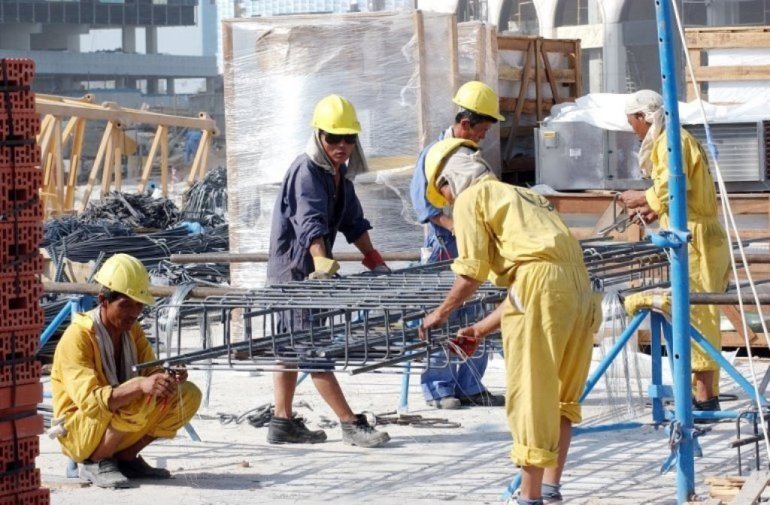Human Rights Watch lauds Qatar’s new labour reforms

The State of Qatar has reaffirmed its commitment in developing laws in line with international labour standards and the guidance of ILO, said a senior official adding that as always, Qatar is open to suggestions and aims to be a model of best practice for workers rights.
“The State of Qatar will ensure, in coordination with NGOs, that workers’ rights are secure, while continuing to develop and reform our laws,” Saif bin Ahmed Al Thani, the Director of Government Communication Office, tweeted yesterday commenting on the statement issued by the ILO.
Qatar’s minimum wage initiative aiming to “meet the necessary needs of the worker to live at an appropriate humanitarian level” was commended by international organisations. The Qatar government’s newly announced labour reforms are a step in the right direction, but their implementation will be the decisive factor, Human Rights Watch (HRW) said yesterday.
The measures taken by the government in this regard were considered by Human Rights Watch as path-breaking step for all Gulf countries where migrants make up most of the labour force.
Doha pledged a series of important labour reforms. These are outlined in an ILO document where Qatar expressed a commitment to the ILO to institute a minimum wage, allow the monitoring of labour practices by independent experts, and reform the kafala (sponsorship) system.
Sarah Leah Whitson, Middle East director at Human Rights Watch said: “Qatar’s decision to allow the monitoring of labour practices could help protect the rights of hundreds of thousands of migrant workers who toil in sometimes hazardous or even life-threatening conditions.”
She added: “The kafala system is Gulf-wide; other countries in the region should take similar steps.” However the organisation said the ILO document provides few details about how the laws will be amended, implemented and timeframe set for their implementation.
H E Issa Saad Al Jafali Al Nuaimi, Minister of Administrative Development, Labour and Social Affairs, announced during a meeting with foreign diplomats recently the initiative of minimum wage and bilateral agreements signed by the government with 36 countries exporting workforces to Qatar, to provide legal protection for workers headed to the Gulf. Also on October 26, Qatar’s Cabinet approved establishment of a “Workers’ Support and Insurance Fund,” including minimum wage. The fund will be created with legal entity aiming to provide sustainable financial resources for the support and insurance of workers.
The cooperation agreement, according to the ILO document, includes a labor inspection policy, again without providing much detail but stipulating that inspections should increase and include large-scale projects such as those for the 2022 World Cup.
The ILO document cites a Qatari government communication with the organization dated October 2 that references Law no. 13 of 2017, an August 16 amendment to Labor Law No. 14 of 2004, that obliges workers and employers to refer disputes, such as exit visas and employment contracts, to a Ministry of Administrative Development, Labour and Social Affairs body.
If the body is not able to settle the dispute amicably, the government will refer the case to the dispute resolution committee within the same ministry. The law stipulates that the body must resolve disputes within three weeks and includes disputes raised by migrant domestic workers, granting the right of appeal to both parties of the committees’ decisions.
The communication states that the rules and procedures of the committee are pending approval by H H the Emir. Human Rights Watch urges passage of clear rules and procedures that put a definitive end to the kafala system and bring Qatar’s labor laws into full compliance with ILO standards.
Qatar hosts nearly two million migrant workers, who comprise approximately 95 percent of its total labour force. The ILO outlined a technical cooperation agreement with Qatar that will focus on extensive reforms of the kafala system, institute a nondiscriminatory minimum wage, improve payment of wages, end document confiscation, enhance labour inspections and occupational safety and health systems, refine the contractual system to improve labor recruitment procedures, and increase prevention of forced labour.
The Peninsula